New blow for BiFab yards as offshore contract bid collapses
- Published
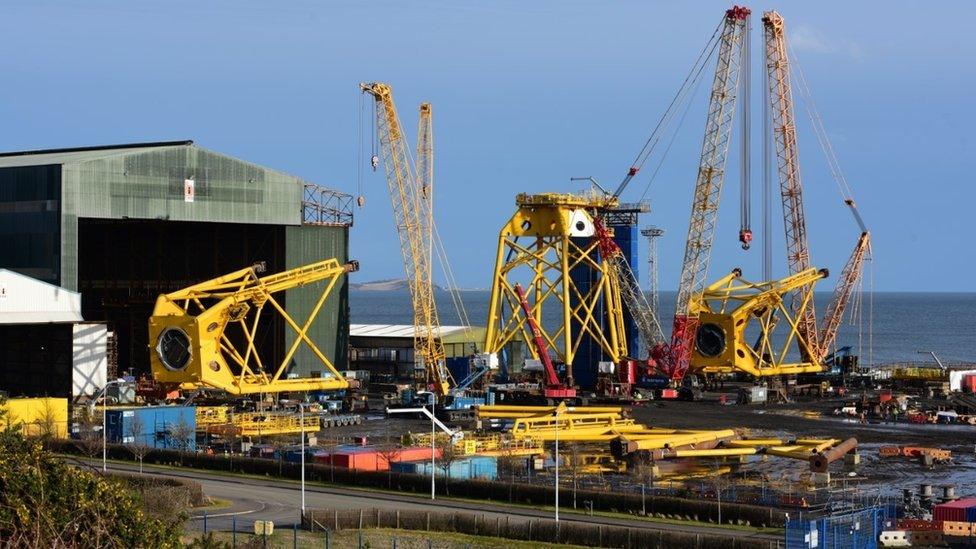
BiFab's Methil yard in Fife is one of three currently mothballed
The future of three BiFab fabrication yards in Fife and on Lewis are in even more doubt after its Canadian owners withdrew a bid for a major contract.
DF Barnes had been negotiating to build jackets for wind turbines to be installed off Fife by French firm EDF.
But the company has pulled out, citing a refusal by the Scottish government to provide financial guarantees.
The government said rules on state aid limited the amount of support it could offer.
All three fabrication yards - at Burntisland, Methil and Arnish - are currently mothballed.
The Scottish government took a stake in the Bifab yards when they were saved from permanent closure in April 2018.
But it said it was legally barred from guaranteeing contracts while the majority shareholder was not funding the company or the yards.
BiFab's board of directors said they were "now considering the path forward for the company".
'Legally barred'
A company statement said the government's decision meant "it can no longer provide assurances for the NnG jacket fabrication contract".
It added: "BiFab recognises that this makes an award of the contract very challenging. The company and its partners have worked extremely hard to secure this important contract."
Economy Secretary Fiona Hyslop told BBC Scotland: "The situation at BiFab is serious."
She added that as a minority shareholder the amount of funding ministers could provide had been "exhausted".
The Scottish government highlighted that it had already invested £37.4m through a combination of equity and loan facilities and converted this to a 32.4% equity stake in BiFab.
"A loan facility of £15m has also been provided to support working capital," the spokesman added.
"We will continue to do everything possible to support the business while recognising the need for us to remain in line with State Aid regulations."
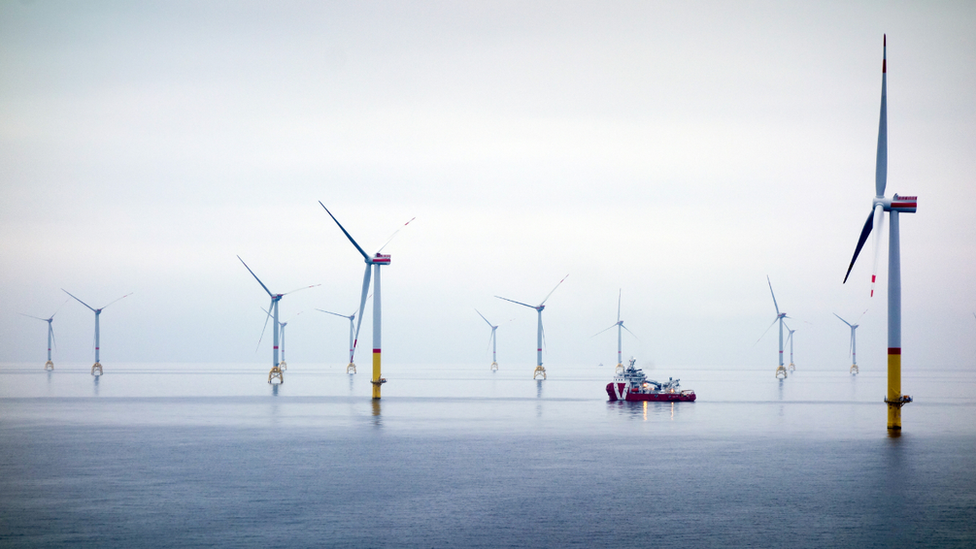
BiFab had hoped to secure work for wind turbines to be installed off the Fife coast
Trade unions have been highly critical of the failure to secure more renewable power engineering work for BiFab.
Work on turbine jackets was seen as the best hope for Scotland's offshore fabrication sector.
However, contracts have repeatedly gone to overseas yards, including Spain and Indonesia.
BiFab also recently lost out on work for the Seagreen wind farm off the coast of Angus, with those jackets being constructed instead in China and the United Arab Emirates.
Overseas yards are able to build at scale and with prices far lower than BiFab can achieve. They may also gain from government subsidy.


If you're bidding for a big manufacturing contract, you'd better be able to deliver. That's why financial guarantees, bonds and sufficient capital are required.
On a multi-billion pound wind farm, it matters that suppliers deliver, and on time. So to win even a small part of the next big thing to appear on the horizon from the East Neuk of Fife will require a lot of financial guarantee - perhaps as much as £65m to build only eight jackets.
That is the assurance that BiFab wanted from the Scottish government. The Scottish government, already in deep, to the tune of £52m of investment and loans, says it isn't legally allowed to provide such funds under the rules on state aid. (These rules are, it seems, in a state of flux while Brexit negotiations continue.)
Both Scottish government and trade unions are angered that DF Barnes has done so little to invest in the Fife and Lewis fabrication yards. The Newfoundland engineering firm appear to have become involved without understanding what it was getting into, in procurement or political terms.
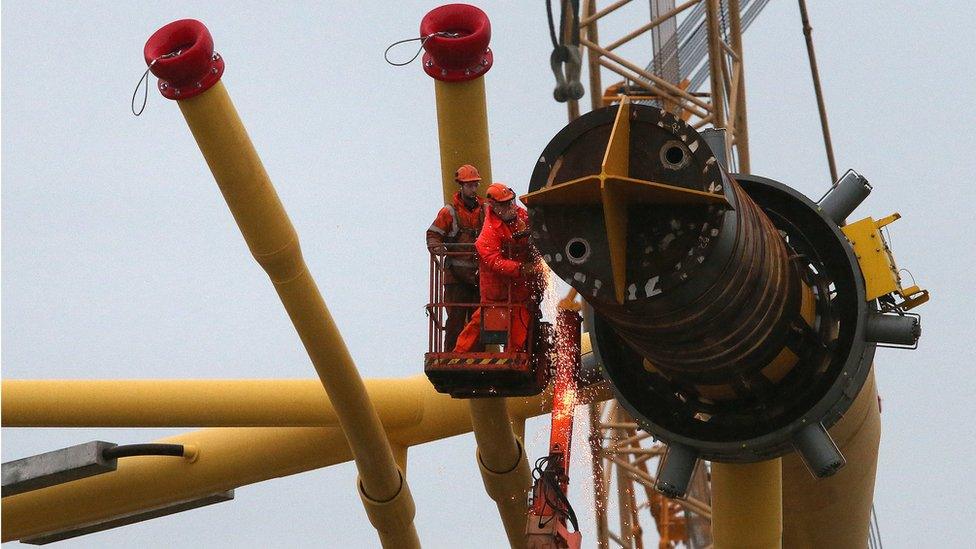
Work on turbine jackets at BiFab's Burntisland site
What else has gone wrong? Quite a lot, but the root of it looks like a private and government failure to invest for the scale, efficiency and pace of manufacturing that this new industry requires.
To win contracts to supply offshore wind power to the grid, energy companies have driven down costs sharply. To do that, they've gone where fabrication is done most efficiently, and that means China, the UAE, Spain, with Belgian project managers and Norwegian offshore expertise.
Trade unions can often be accused of over-statement in the face of inevitable change in the jobs market. In this case, their fury is for real, having long complained that contracts should have included a requirement of local content within the supply chain.
While energy firms point out there will be jobs in installation, maintenance and onshore engineering support. But with £5bn investment in just two current projects, comprising 168 turbines, unions see the lack of manufactured content as political failure: "People are right to be absolutely furious".
There are no further contracts on the horizon for now, but wind power has a lot more potential puff around Scottish coasts. It may be getting too late for BiFab in its current form: it's not too late to turn around this sorry tale of missed opportunities. But lessons have to be learned quickly.
- Published18 September 2020
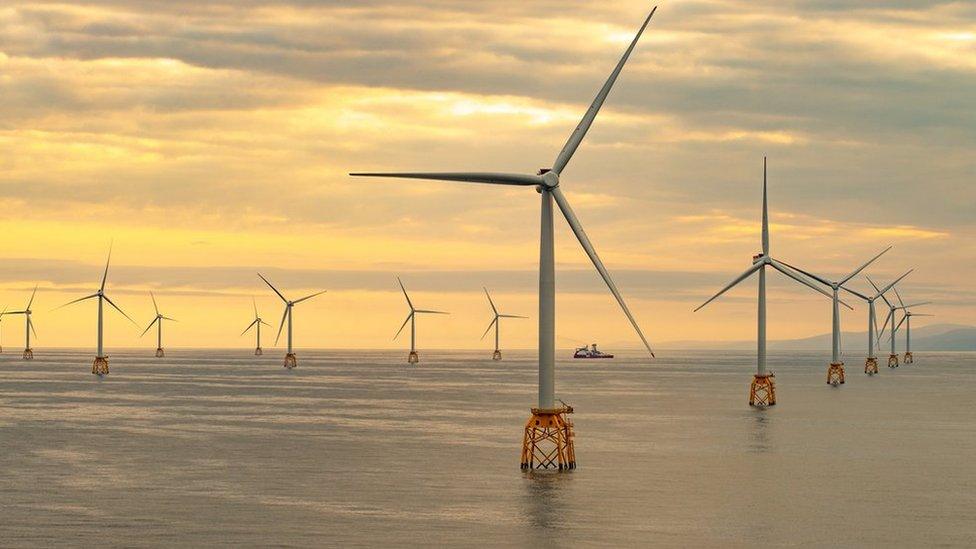
- Published28 November 2019
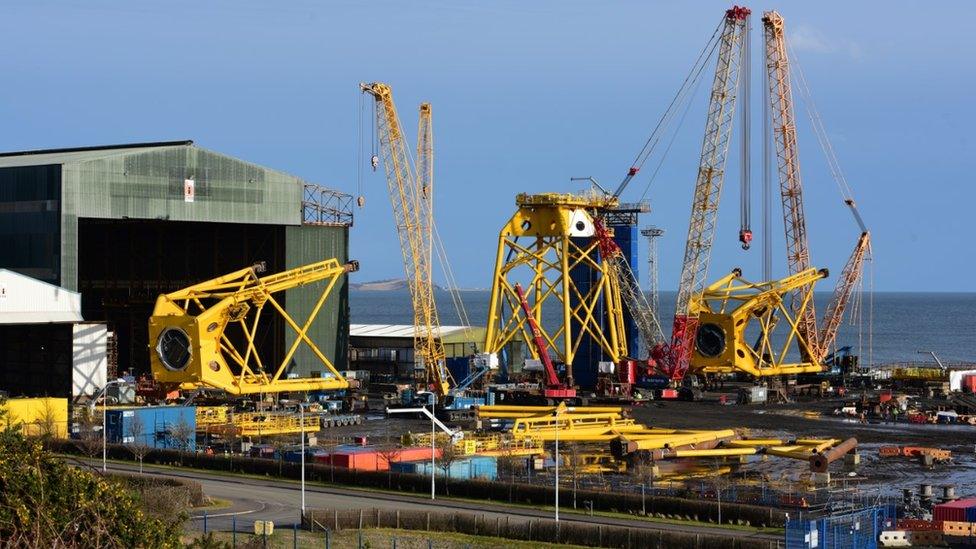
- Published17 October 2019
- Published7 March 2019
